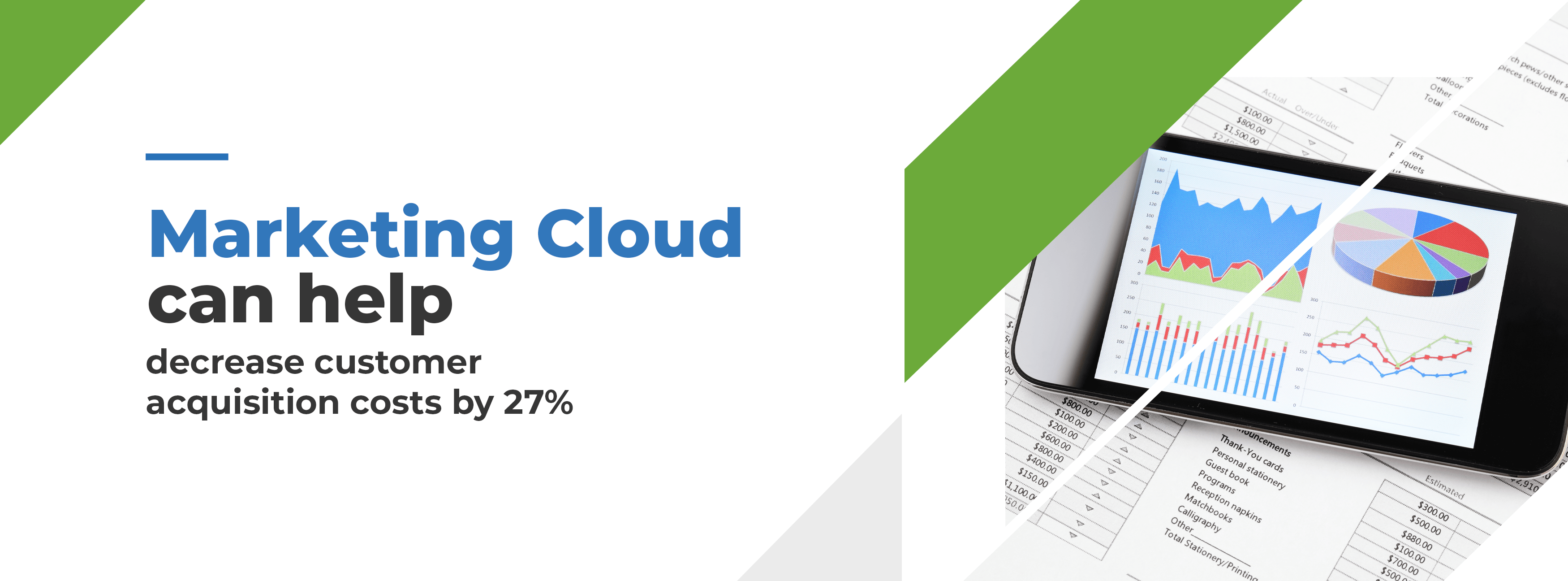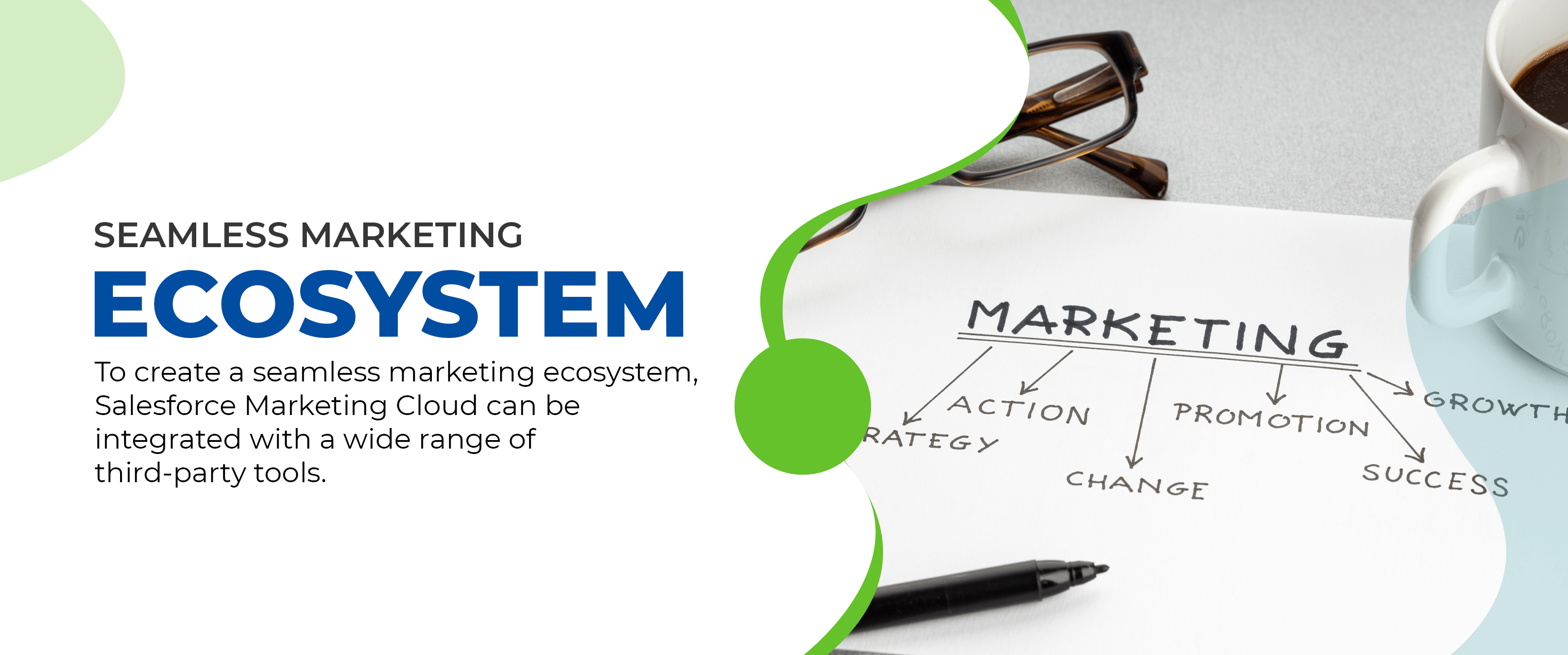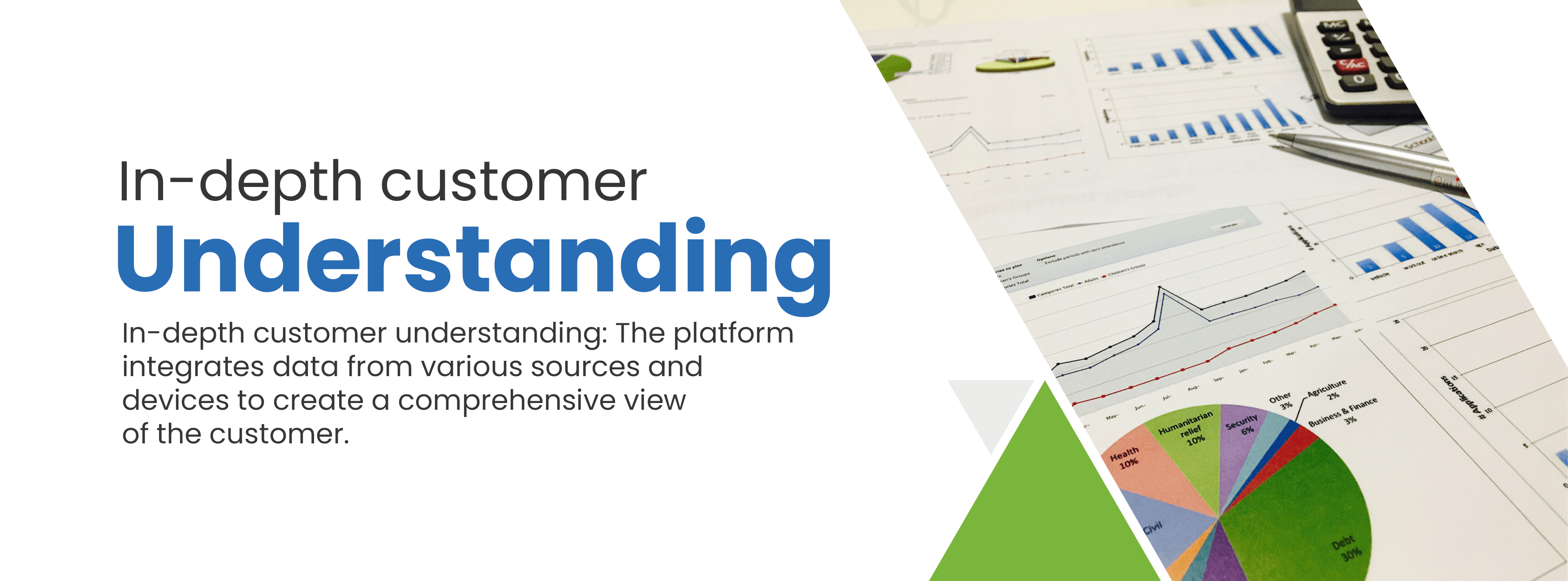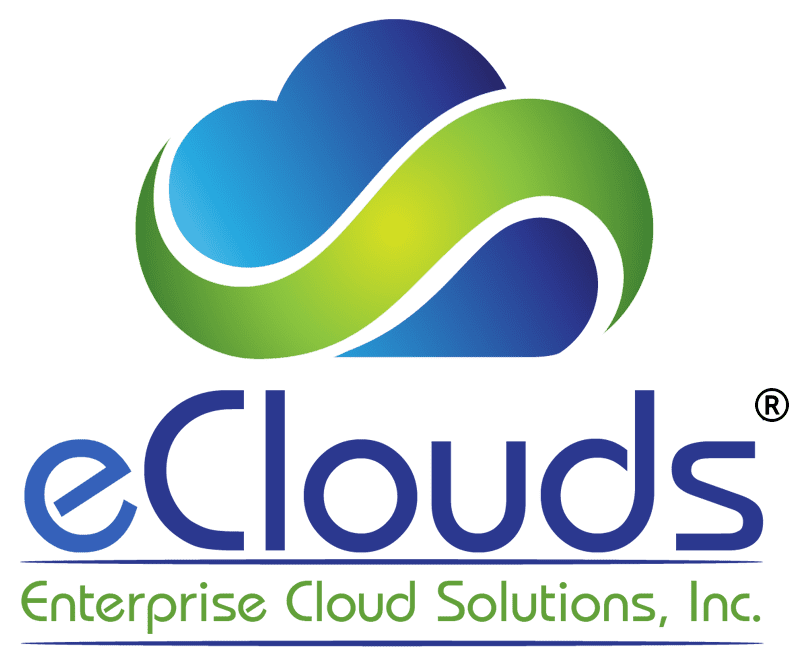What is Salesforce Marketing Cloud?
- What is Salesforce Marketing Cloud? An Overview and Purpose
- Key Components and Capabilities
- How to Maximize Your Salesforce Marketing Cloud Experience
- Integrating Salesforce Marketing Cloud with Other Tools
- Salesforce highlights four key advantages of using its Marketing Cloud platform
- Integrating Salesforce Marketing Cloud with Other Tools
- Marketing Cloud Email, Mobile, and Web Marketing Pricing
- How eClouds Experts Can Help?
What is Salesforce Marketing Cloud? An Overview and Purpose

Key Components and Capabilities
- Journey Builder: A marketing automation solution from Salesforce designed to create personalized customer journeys across multiple channels.
- Email Studio: Focused on executing customized email marketing campaigns.
- Social Studio: Aimed at creating tailored campaigns to convert social media followers into potential leads.
- Mobile Studio: Facilitates marketing interactions on mobile devices through SMS, push notifications, and group messaging.
- Audience Studio: Captures data from various sources and consolidates it in one place, enabling "social listening" to create more engaging content for the audience.
- Advertising Studio: Salesforce's solution for managing acquisition, retargeting, and alignment campaigns in digital advertising.
- Datorama: A central hub for accessing data through a dashboard, monitoring return on investment, and supporting business growth.
- Interaction Studio: A tool for visualizing customer experiences in real-time and connecting with them through any interaction.
- Data Studio: Salesforce's solution for discovering audiences, acquiring data, and taking control of it, ultimately increasing revenue by leveraging valuable data.
- Google Analytics 360: Integrated with the Marketing Cloud platform, this tool from Google helps users gain customer insights to better understand and optimize marketing efforts.
- Pardot: Tailored for B2B, Pardot simplifies marketing automation to empower sales teams in closing deals and establishing meaningful connections.
How to Maximize Your Salesforce Marketing Cloud Experience
To get the most out of Salesforce Marketing Cloud, consider the following tips:
- Set clear goals: Establish specific, measurable, achievable, relevant, and time-bound (SMART) objectives for your marketing campaigns.
- Leverage data: Utilize data from multiple sources to create a holistic view of your customers and deliver personalized experiences.
- Test and optimize: Continuously test different elements of your campaigns, such as subject lines, content, and calls-to-action, to identify areas for improvement and optimize performance.
- Stay up-to-date with best practices: Regularly review industry trends and best practices to ensure your marketing strategies remain effective and relevant.
- Invest in training: Provide ongoing training and support for your team to help them maximize the capabilities of Salesforce Marketing Cloud and drive better results.

Integrating Salesforce Marketing Cloud with Other Tools
To create a seamless marketing ecosystem, Salesforce Marketing Cloud can be integrated with a wide range of third-party tools, including:
- CRM systems: Connect Salesforce Marketing Cloud with your CRM platform, such as Salesforce Sales Cloud, to synchronize customer data and create a unified view of your audience.
- E-commerce platforms: Integrate with e-commerce platforms like Shopify or Magento to track customer behavior and personalize the shopping experience.
- Analytics tools: Enhance your data-driven marketing strategies by integrating Salesforce Marketing Cloud with analytics tools like Google Analytics or Adobe Analytics.
- Social media management tools: Connect your social media accounts with Salesforce Marketing Cloud to manage and monitor your social presence more effectively.
Salesforce highlights four key advantages of using its Marketing Cloud platform:
- In-depth customer understanding: The platform integrates data from various sources and devices to create a comprehensive view of the customer. Additionally, it enables the capture and activation of first-, second-, and third-party data.
- Personalization through artificial intelligence: Marketing Cloud combines data with the Einstein tool, empowering AI-driven interactions. As a result, the platform enables tailored communication with customers based on their relationship with the company.
- Engaging customers throughout their journey: Salesforce's marketing platform maintains customer interest and awareness during the entire process by enabling real-time, two-way engagement. This approach also provides insights into each customer's most suitable actions.
- Impact assessment: Marketing Cloud measures customer journey metrics across multiple channels and devices using artificial intelligence and Google Analytics 360.

Integrating Salesforce Marketing Cloud with Other Tools
To create a seamless marketing ecosystem, Salesforce Marketing Cloud can be integrated with a wide range of third-party tools, including:
- CRM systems: Connect Salesforce Marketing Cloud with your CRM platform, such as Salesforce Sales Cloud, to synchronize customer data and create a unified view of your audience.
- E-commerce platforms: Integrate with e-commerce platforms like Shopify or Magento to track customer behavior and personalize the shopping experience.
- Analytics tools: Enhance your data-driven marketing strategies by integrating Salesforce Marketing Cloud with analytics tools like Google Analytics or Adobe Analytics.
- Social media management tools: Connect your social media accounts with Salesforce Marketing Cloud to manage and monitor your social presence more effectively.
Integrating Salesforce Marketing Cloud with Other Tools
Personalize and automate every customer's email, mobile, and web journeys at scale.
- Basic: Personalized promotional email marketing starting at $400 org/USD/month (billed annually)
- Pro: Personalized marketing automation with email solutions starting at $1,250 org/USD/month (billed annually)
- Corporate: Personalized cross-channel strategic marketing solutions starting at $3,750 org/USD/month (billed annually)
- Enterprise: Sophisticated journeys across channels, brands, and geographies - Request a quote
Pricing is based on contact and message volume.
How eClouds Experts Can Help?

Citation Reference
Make every moment count with AI + Data + CRM. Retrieved from Salesforce (n.d).
Build and manage personalized customer journeys with Marketing Cloud. Retrieved from Salesforce (n.d).
Email, Mobile, and Web Marketing Pricing. Retrieved from Salesforce (n.d)
Why eClouds? Retrieved from the company (n.d).
Popular Post

A Complete Guide to Understanding Salesforce Sales Cloud

5 Things You Should Consider in Choosing Your Salesforce Implementation Partner

11 Key Benefits of CPQ Every Business Needs to Know

10 Most Common CRM Implementation Challenges that You Must Be Aware Of






